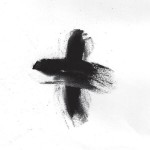Ash Wednesday. Lent Begins.
Man, drawn from the dust, must return to it. All that he does meanwhile is but corruption and vanity, with the exception of what good he may achieve. The good alone survives.
Such are the truths which the Church wishes to engrave in the memory, but still more in the hearts of her children, by the sprinkling of ashes on this first day of Lent.
The custom dates from the first centuries of the Church, and was then observed, not toward all the faithful without distinction, but toward public sinners who had submitted themselves to canonical penance. The bishop imposed on them the obligation of wearing the hair-shirt and penitent garb, placing ashes on their head, and then excluding them from the church until the day of Easter. Meanwhile they had to remain humbly prostrate at the church-porch, imploring the prayers of those who might assist in the divine mysteries at mass.
The custom of putting ashes on the head in token of penitence is even more ancient than Christianity. The Jews practiced it, and King David tells us that he had submitted to the observance. Job had also followed the custom. Indeed it may be said that nothing is more calculated to lead the sinner to enter into himself than the remembrance of his last end. Nothing is better fitted to beat down pride and put a check on futile projects or guilty purposes than the terrible memento, “remember that thou art but dust!” Empires, riches, honors and dignities, resplendent palaces, triumphal cars, fair adornments, beauty, strength and power – all will eventually crumble away. Their very possessor is but a ruin ere a few days have sped, and he or she will have dwindled into dust.
Reflection. “Remember, O man, that you are dust, and unto dust you shall return.”


